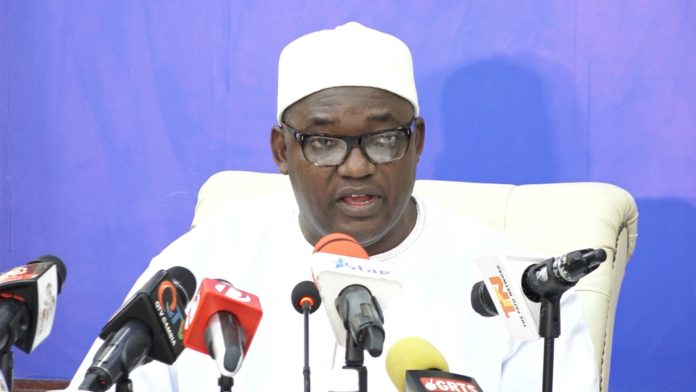Your Excellency,
It’s 535 days today since confirmation of the first case of COVID-19 in The Gambia. I am sure you are aware that this enemy virus has killed 319 people and still counting. Interestingly, allow me to use this opportunity to inform you about the hidden cracks of public health service in The Gambia.
Let’s start with leadership at the Ministry of Health. There is no clear cooperation in whatsoever between decision makers in Quadrangle and public health workers which reflects the lack of genuine concern coupled with chronic hatred and clouded with office politics. The attitude of the health leadership continues to trigger dangerous knock-on effects for health care in our country and the vulnerable population face a rising risk of falling through the cracks.
Your Excellency, public health service in The Gambia continues to face concurrent challenges of responsiveness and clear orientation. It is lost in no location. Best, our most successful achievements frequently lead to apathy in the face of political recognition and commitment. Public health has a record of accomplishment that should be a source of pride for us and a model for our sub-region but the hidden cracks won’t let us. The coma, CPR needed dilapidated healthcare systems have facilitated medical tourism – the visits of note taking and per diem collection without any intervention – with the poor crying in silence most especially those in rural Gambia.
Your Excellency, our current public health realities does not show a good prognosis for the future of public health in The Gambia because it seems the more things change, the same they remain. Many important diagnostic and therapeutic procedures remain completely unavailable in this small country. The pluses and minuses of our health budget is no way getting better. Limited funding in public health activities will allow limited response to public health emergencies and a shared vulnerability requires a shared responsibility. Therefore, increase funding with strict accountability to better promote activities that are not an option but a priority. Beyond this, consider program expansions on top of existing activities or otherwise consider realignment of programs according to program priorities.
Your Excellency, strikes for pay is the language best understood by the Ministry responsible for our health. The effects of health workers’ strikes have far-reaching consequences. For once, investing in decent working conditions for health workers is a vital step to ensure standing investments on the health system and not just allowances.
Your Excellency, finally, allow me to remind you that the vision for public health requires leaders who are pragmatic, honest, and truthful with technical competence on public health issues, sound managerial abilities, knowledge and skills In public decision process of calming strikes and not unnecessarily agitating staff. Plus, the ability to reconcile different opinions for effective action. Our current leadership shorts fall of this. The prescription for sealing these cracks is simply retooling our health system. We need to grease the wheels and oil the engine. Under such dire circumstances, one must definitely ask, how can a sick health care system cure the sick?
Best,
SG Sillah
Lecturer
School of Public Health









